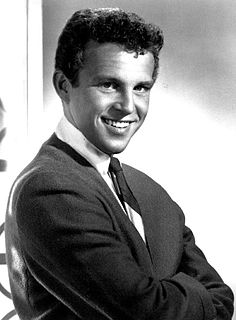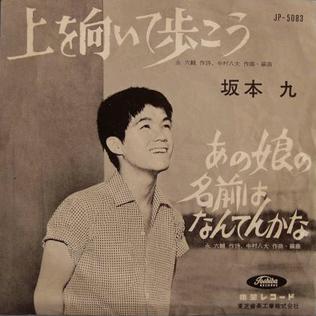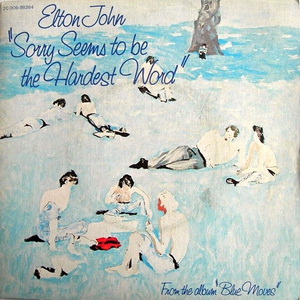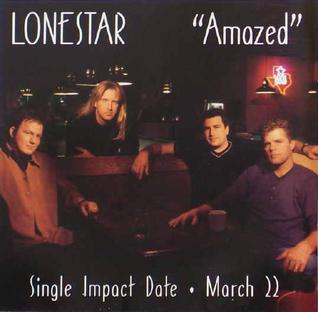
"Unchained Melody" is a 1955 song with music by Alex North and lyrics by Hy Zaret. North wrote the music as a theme for the little-known prison film Unchained, hence the song title. Todd Duncan sang the vocals for the film soundtrack. It has since become a standard and one of the most recorded songs of the 20th century, most notably by the Righteous Brothers in July 1965. According to the song's publishing administrator, over 1,500 recordings of "Unchained Melody" have been made by more than 670 artists, in multiple languages.

Stanley Robert Vinton, better known by his stage name Bobby Vinton, is an American singer, songwriter, and actor. As a teen idol, he became known as 'The Polish Prince', as his music paid tribute to his Polish heritage. One of his most popular songs is "Blue Velvet" which reached No. 1 on the Billboard Hot 100 in 1963 and No. 2 in the UK in 1990.

"Ue o Muite Arukō" is a song by Japanese crooner Kyu Sakamoto, first released in Japan in 1961. The song topped the charts in several countries, including the U.S. Billboard Hot 100 in 1963. The song grew to become one of the world's best-selling singles of all time, selling over 13 million copies worldwide.

"Lonely" is a song by Senegalese-American singer and rapper Akon; it appears on his debut album, Trouble. Featuring a prominent, high-pitched sample of the 1964 song "Mr. Lonely" by Bobby Vinton, the single was released on February 22, 2005, and was Akon's first worldwide hit. It reached number one in several countries, including in the United Kingdom and Germany, and Australia. It was also highly popular in France, where it reached number two, and in the United States, where it peaked at number four. An edited version was on Radio Disney and on Radio Disney Jams, Vol. 8.

"Nothing Compares 2 U" is a song written and composed by Prince for his side project, The Family; the song featured on their eponymous 1985 debut album. The song's lyrics explore feelings of longing from the point of view of an abandoned lover.

"Love You Inside Out" is a 1979 hit single by the Bee Gees from their album, Spirits Having Flown. It reached number one on the Billboard Hot 100 for one week in June 1979, interrupting Donna Summer's "Hot Stuff", becoming the third single from the album to do so. In the UK, the single peaked at No. 13 for two weeks. It was the ninth and final number-one hit for the Bee Gees in the US. The trio would not return to the top 10 for ten years, with the song, "One".

"Blue Savannah" is a song by Erasure which was issued as a single from the duo's fourth studio album, Wild!, in 1990. It is a classic Erasure synthpop song written by members Vince Clarke and Andy Bell. Mute Records released it in Europe as the album's third single, and Sire Records released it in the United States as the album's second single. Considered one of the band's signature songs, the duo still perform it regularly in concerts. It has been described as an uplifting love song; the instrumentation is crisp and heavily synthesized, accented with sweeping, programmed piano.

"Sorry Seems to Be the Hardest Word" is a song written by Elton John and Bernie Taupin. It was recorded by Elton John and released in 1976, both as a single and as part of the Blue Moves album. It was John's second single released by The Rocket Record Company. The song is a mournful ballad about a romantic relationship which is falling apart.

"Amazed" is a power ballad by American country music group Lonestar, released on March 28, 1999, for country radio and on December 13 of that same year for pop radio as the second single from their third studio album Lonely Grill (1999). It is the band's longest-lasting number one single and biggest hit, spending eight weeks at the top of the Billboard country chart. The song was written by Marv Green, Aimee Mayo, and Chris Lindsey. A remix of the song was released in December 1999, and reached number one on the Billboard Hot 100 and number 2 on the Hot Adult Contemporary Tracks charts in 2000. The song has sold over 1,650,000 digital copies in the US as of February 2016.

"My Melody of Love" is the title of a popular song from 1974 by the American singer Bobby Vinton. Vinton adapted his song from a German schlager song "Herzen Haben Keine Fenster" composed by Henry Mayer, and it appears on Vinton's album Melodies of Love. The song was also recorded by Spanish pop singer Karina as "Palabras de Cristal".

"Lonely Is the Night" is a song by Australian-British band Air Supply, released in 1986, as the lead single from their ninth studio album, Hearts in Motion (1986). The ballad was written by Albert Hammond and Diane Warren, while John Boylan produced it. "Lonely Is the Night" was a minor success in the United States, reaching number 76 on the Billboard Hot 100 and 12 on the Adult Contemporary chart.
"Under My Skin" is a song by Blue System. It is the first track on their 1988 second studio album, Body Heat, and was released as its second lead single.
"Lucifer" is a song by Blue System. It is the first song on their 1991 fifth studio album, Seeds of Heaven, and was released as its lead single.
"Déjà vu" is a song by Blue System. It is the first track on their 1991 sixth studio album, Déjà vu, and was released as its lead single.
"Romeo and Juliet" is a song by Blue System. It is the first track on their 1992 seventh studio album, Hello America, and was released as its lead single.
"48 Hours" is a song by Blue System. It is the sixth track on their 1990 fourth studio album, Obsession. It was released as a single around six months before the album came out.
"History" is a song by Blue System. It is the first track on their 1993 eighth studio album, Backstreet Dreams, and was released as its lead single around a month prior.
"Laila" is a song by Blue System. It is the first track on their 1995 eleventh studio album, Forever Blue, and was released as its lead single around a month prior.
"Silent Water" is a song by Blue System. It is the ninth and penultimate track on their 1988 second studio album, Body Heat. The song was released as a single in the beginning of January 1989.
"Love Suite" is a song by Blue System. It is the fourth track on their 1988 second studio album, Body Heat. A remixed version of the song was released as a single in the spring of 1989.











